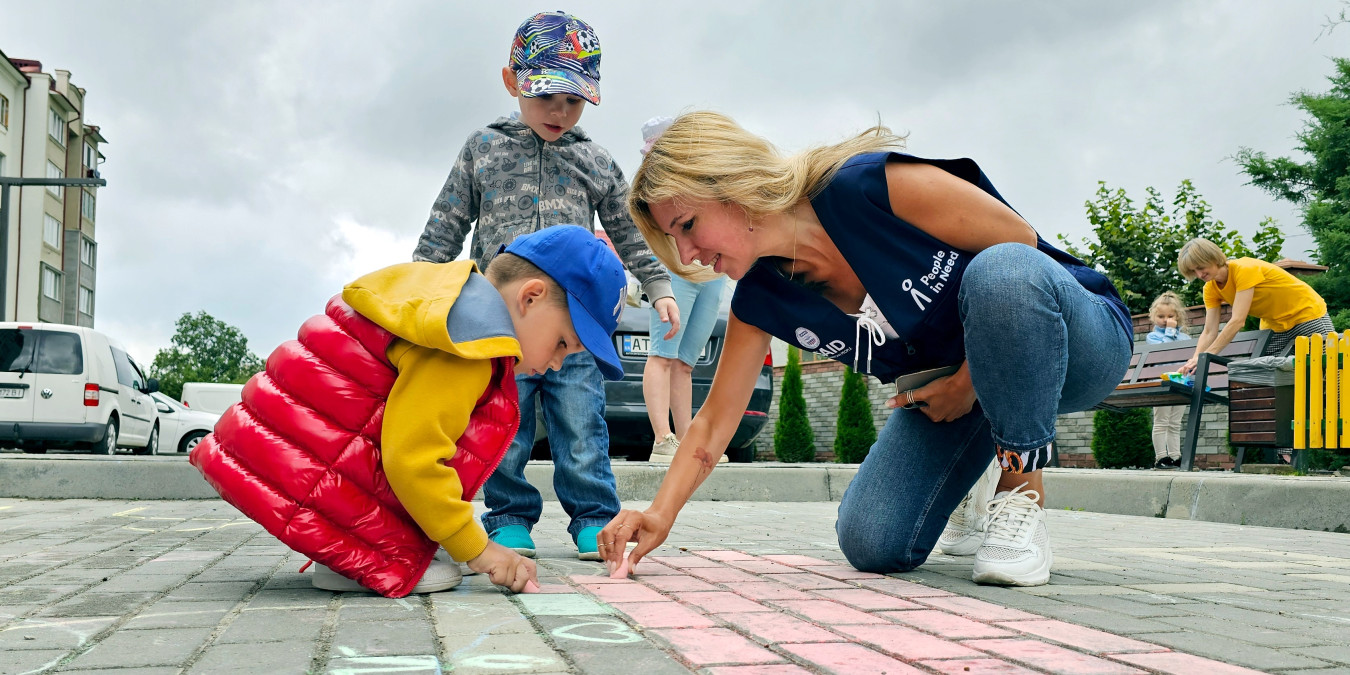Light in the darkness: humanitarian strength in the face of suffering
Published: Aug 19, 2024 Reading time: 5 minutes Share: Share an article
Having recently celebrated World Humanitarian Day on 19 August, it is appropriate to highlight a worrying trend in the humanitarian field: increased attacks on humanitarian workers.
Humanitarian workers often come from conflict- or disaster-affected regions, and they are frequently victims of attacks. This year alone, 192 humanitarian workers have been killed; 119 of them were from the countries in which they worked.
We have been responding to emergencies globally for more than 30 years. Our colleagues work in nine countries identified by the ACAPS Humanitarian Access Overview as having very high or extreme access constraints. One of these countries is Ukraine, which has endured full-scale war for more than 900 days.
Despite the chaos and pain caused by Russia's war in Ukraine, it has also brought out valuable human qualities such as compassion and solidarity. Recently, I had the opportunity to join the People in Need team in Ukraine and witness first-hand the courage and selflessness of our colleagues who work to help Ukrainians bring a ray of light into the lives of those affected by the war. Our colleagues continue to work with unconditional dedication, even when they have to wear helmets and bulletproof vests to help those who are suffering. Together with them, I managed to cross Ukraine from west to east, visiting places liberated from Russian occupation, observing life close to the front and meeting many wonderful people whom we support in these difficult times.
"We have already shed all our tears... Now we must fulfil our mission"
Humanitarian work is extremely challenging. In addition to the personal risks, humanitarians are directly confronted with the suffering of those they help. The difference between reading about war and experiencing it is profound. Looking into the eyes of those living a daily nightmare brings a painful awareness of the reality of war. Often, you can read the rhetorical question in those eyes: "What have we done to deserve this?", but you can never get an answer to that question...
When I travelled to villages north of Kyiv, where we are repairing people's homes, I was overwhelmed by the stories of the locals and the suffering they had gone through. Even with my background in journalism, their descriptions sent shivers down my spine. But our Ukrainian colleagues were carrying out their work calmly and professionally. The explanation I later received from one of my colleagues was brief but profound: "We have already shed all our tears... Now we have to fulfil our mission".
This is not to say that the war has made them any harder or less sensitive. On the contrary, having lived through the horrors of war alongside these people, they understand their pain and suffering better than anyone else. But at the same time, our Ukrainian colleagues realise that they need to find the inner strength to be strong and to do their work to help those in need, regardless of the circumstances.
Encounters that matter: empathy as a source of comfort in war-affected communities
For many Ukrainians today, psycho-emotional support has become as important as material aid. During my visits to the affected communities, I was struck by how much people value simple human interaction and empathy. Many of them need to know that they have not been forgotten and that someone cares about them.
During our meetings with the local people, we have witnessed the joy with which people share their worries and small moments of happiness with our team. For some older people in rural areas, the team's visits are a special event, especially in the context of the loneliness exacerbated by the war.
"Happiness exists"
Despite the war, the daily attacks, and the alarms, people in Ukraine continue to find reasons for optimism and joy. Some find relief in their families; others try to be as helpful as possible to their community and those in need. In the village of Shahove in the Donetsk Oblast, we met Svitlana, a social worker who helps her fellow villagers every day.
There, we have opened a social laundry for older people and people who need support. Svitlana works in the laundry every day, washing dozens of kilos of clothes not only for her fellow villagers but also for vulnerable people from neighbouring communities.
Although her job is difficult, she is enthusiastic about her work and happy to be able to help people who need her support. Visibly tired and with a face saddened by hardship, Svitlana takes wings as she begins to talk about the people she helps. With a sincere smile that takes the edge off her tiredness and puts a twinkle in her eye, she talks about her daily routine, which is a great help to many people in the community.
Although Russian troops are advancing daily in the direction of their village, and the explosions are getting louder, the locals continue to express their gratitude for the help they have received and share their hope for peace and a better life. Aunt Kateryna, a very positive woman who regularly uses the services of the social laundry, thanked many times all those, who contributed to the realisation of this project, saying that the laundry is a great help to her now. Aunt Kateryna was happy to see our team and said that since the war started, she had not had many guests and often did not even have anyone to talk to. That's why she took the opportunity to tell us more about her life and her most prominent dream.



